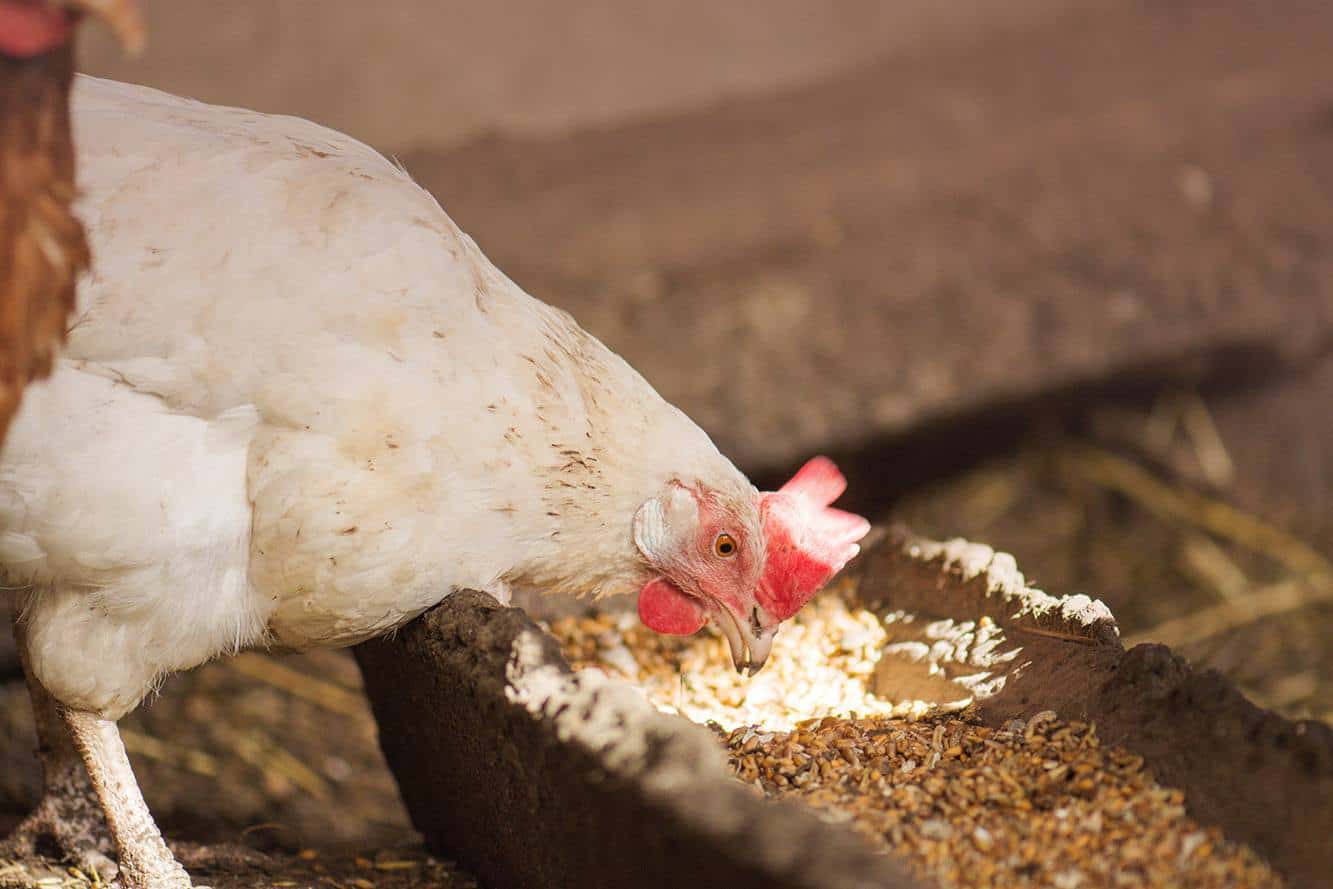Depending on how many chickens you have and what you choose to feed them, feeding chickens can get expensive, and you’ll soon start wondering if those home-grown organic eggs are worth the cost. One of the main reasons that most of us raise chickens at home is for the healthy, free-range eggs that they provide us with, so it makes sense to feed them the best-quality food possible.
Making your own homemade chicken feed is not as difficult as it sounds and can even save you money in the long run. Additionally, you’ll have the benefit of knowing exactly what’s going into your chicken’s food, and you’ll have full control over their health. Of course, this can be stressful too, so you want to be sure your birds are getting all the vital nutrients that they need to thrive.
In this article, we share six chicken feed recipes that won’t break the bank, will give your birds all the required nutrition that they need, and are easy to make. Let’s get started!

Nutritional Needs of Chickens
Before we get into the recipes, it’s vital to be aware of the nutritional requirements that chickens need to thrive. Although chickens are generally hardy birds and expert foragers, they still need a healthy balance of vitamins and minerals to grow properly, stay healthy, and produce healthy, delicious eggs.
Humans have been selectively breeding and keeping chickens for centuries, and most chickens are bred and fed to grow as big as possible, as quickly as possible. This is likely the reason that you got your own backyard flock, to avoid this commercial production. The commercial diet fed to such chickens is different from that of backyard flocks. You want your chickens to grow at a steady, natural rate without getting overweight, using feed that will enhance their health.
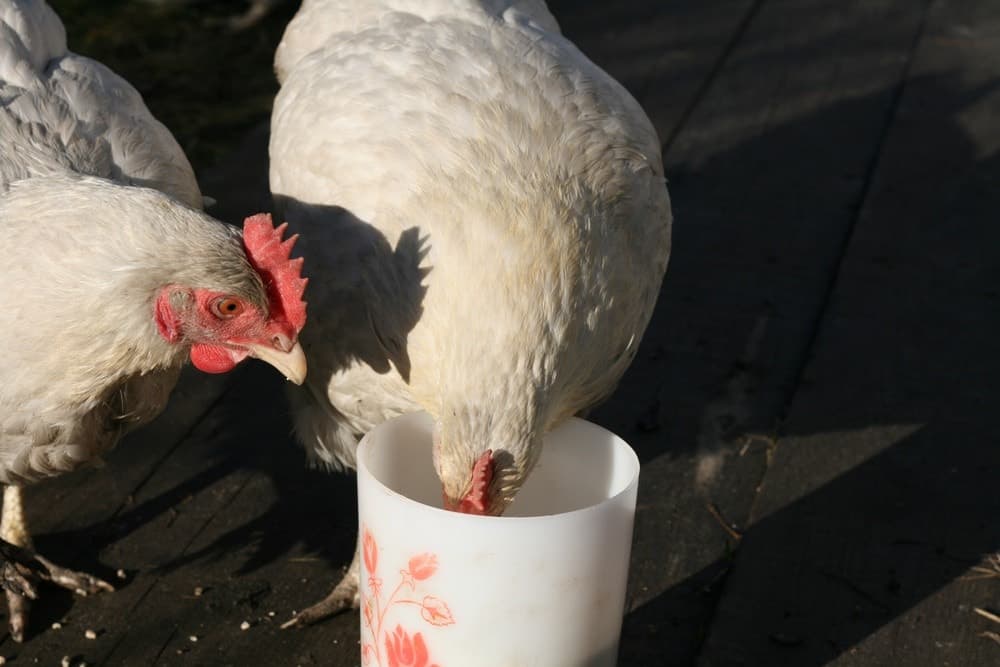
To produce a healthy, nutrient-rich feed for your flock, you’ll need a good balance of the following:
- Protein. Protein is vital to build muscle and provide energy and for overall growth. This is especially important for laying hens, as producing eggs uses up a ton of energy.
- Carbohydrates. Almost all the carbs that your chickens get will come from grains: any small seeds from the grass family, including corn and oats. Carbs will give your chickens plenty of energy, especially in the winter months, and these grains can also be scattered around the yard to promote foraging.
- Greens. There are tons of benefits to giving fresh greens to your chickens, including vital nutrients, like calcium and vitamins A and E. For free-range chickens, it’s simple to provide them with the required greens, and you can also feed them kitchen scraps occasionally — they’ll love it!
- Vitamins and minerals. Vitamins and minerals are an essential part of the health and growth of chickens, and they’ll usually get plenty from greens and foraging. But it’s a good idea to include vitamin-rich foods into their feed too, especially if they are not free-range.
For a basic chicken feed recipe that includes all the grains, vitamins, and minerals that your chickens need, the following ratios are ideal:
- 60% grains (corn, wheat)
- 20% peas
- 10% oats
- 5-10% fish meal
- 2-5% kelp meal
- Crushed eggshells for calcium (optional)
- Salt or mineral salts (depending on pasture access, not required for free-range chickens)
Now that you have a good idea of what your chicken needs to thrive, let’s dive into the recipes!

The 6 Homemade Chicken Feed Recipes
1. Layer Hen Feed
Simple Chicken Feed for Laying Hens
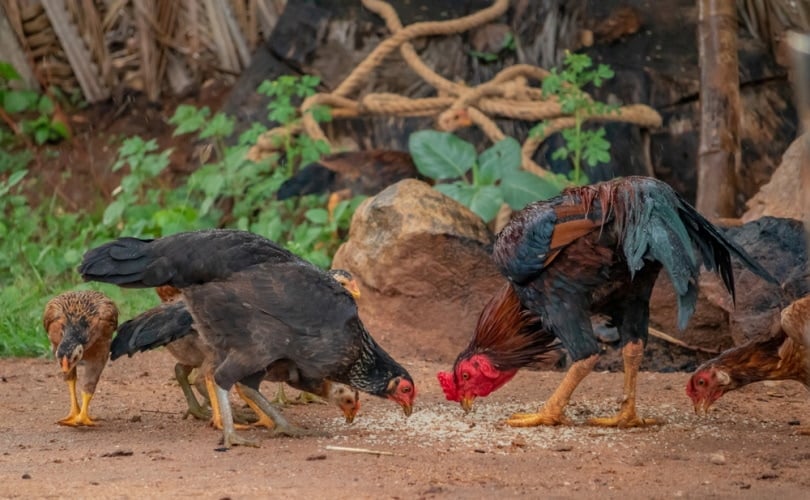
This recipe is formulated for laying hens but is versatile and can be used for all your other chickens too. The ingredients are inexpensive and easy to find and can be found in bulk to save you money.
- Large container
- Mixing stick or large spoon
- 10 pounds cracked corn
- 10 pounds split peas
- 8 pounds wheat
- 1-1.5 pounds oats (do not exceed 15%)
- 1-1.5 ounces flaxseed
- 1-1.5 ounces kelp powder
- Crushed eggshells (optional)
- 1 ounce salt (not for free-range chickens)
- Combine all ingredients in a large container.
- Stir thoroughly mix.
- Feed to your laying hens or other chickens.
2. Basic Feed Recipe
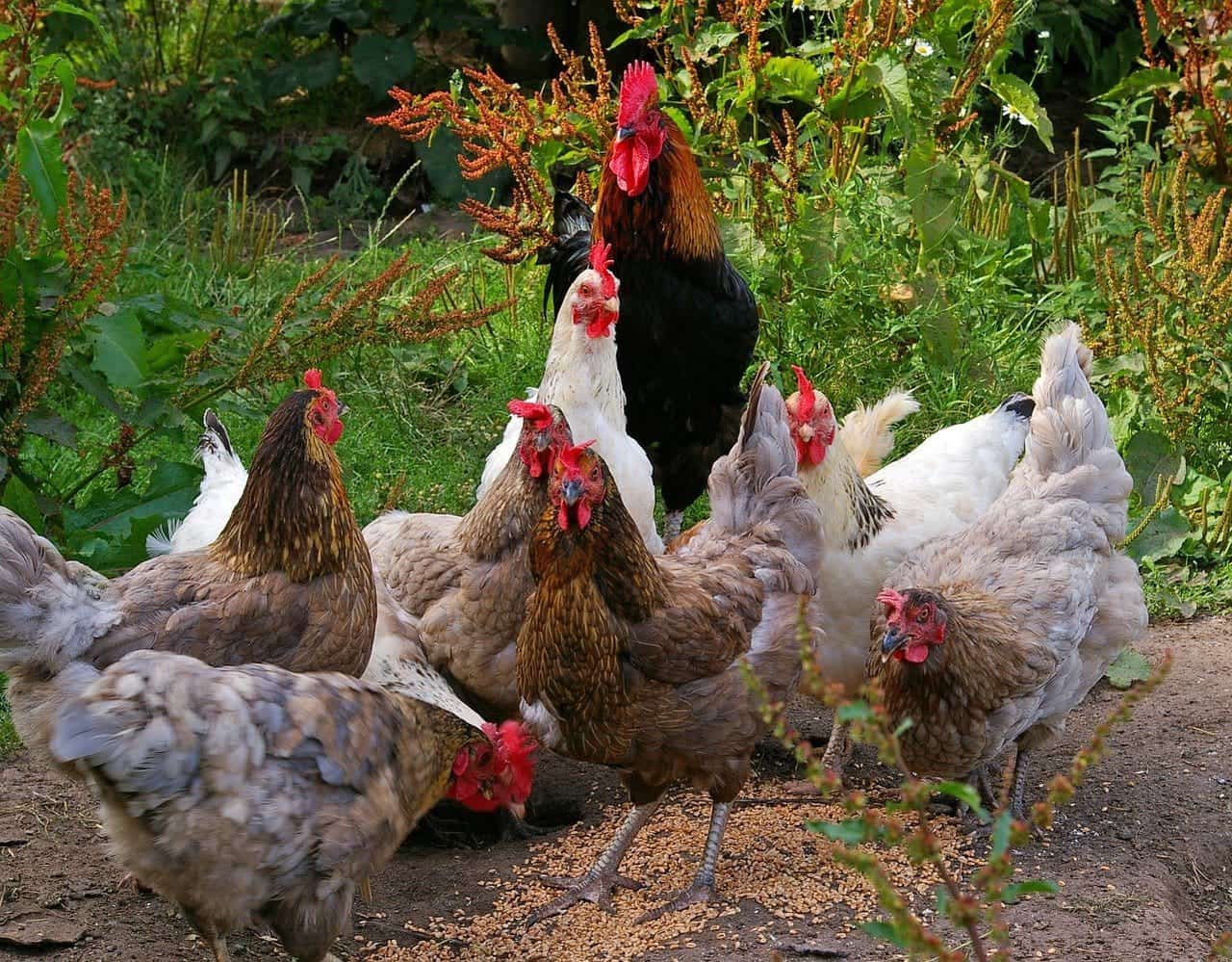
This is a great base recipe to follow that you can easily add to if needed. For winter months, you may want to add extra carbs, or layers may need extra protein. You can also add extras like sea kelp or fish meal for added minerals, but do not exceed 10%.
- 10 pounds of wheat
- 10 pounds of cracked corn
- 10 pounds split or whole peas
- Oats (optional, do not exceed 15%)
- 2-2.5 pounds of sunflower seeds
- 8-10 ounces of flaxseed (do not exceed 10%)
- Mineral mix or salt (not for free-range)
3. Barley-Based Feed
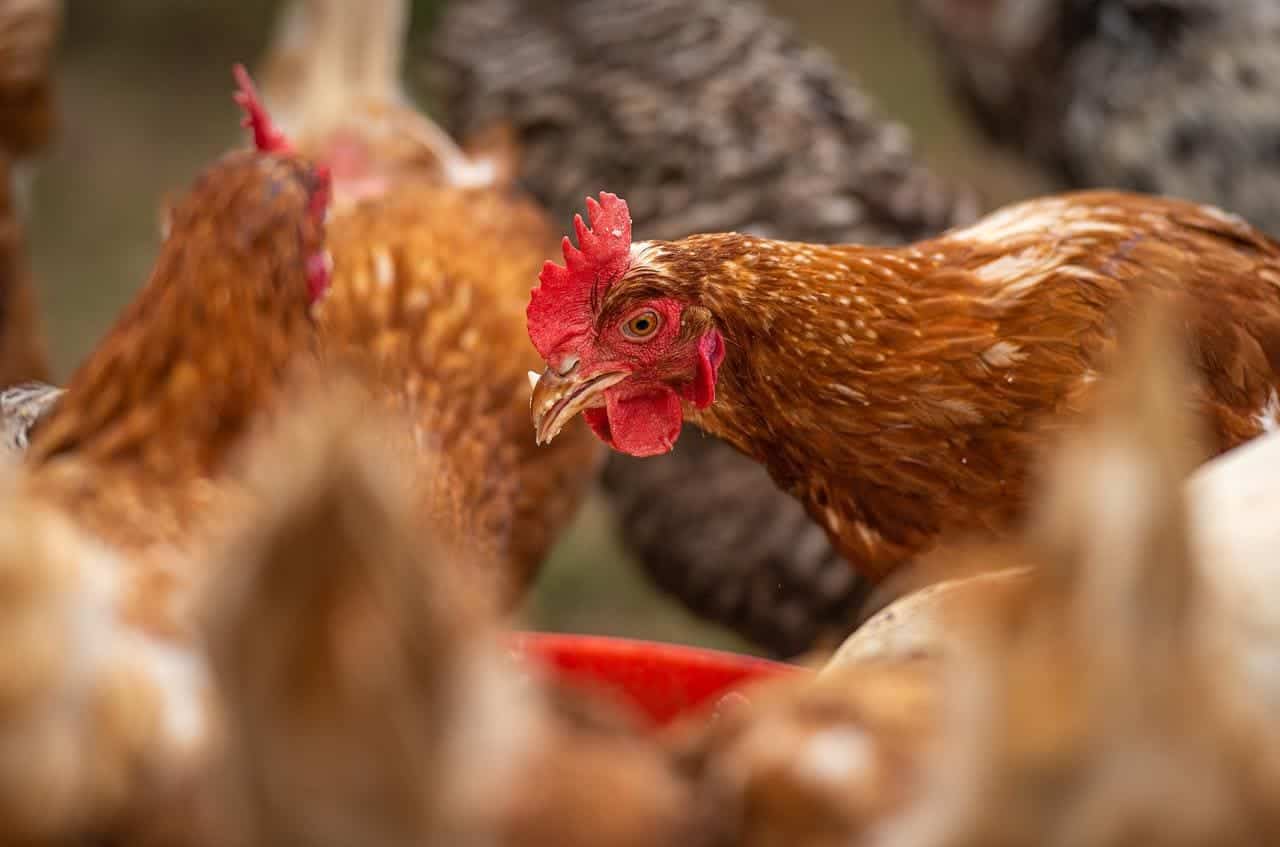
While this feed recipe may be a bit more expensive than most, it’s a great choice for older birds and sensitive birds, as well as for winter feeding. We recommended adding it once or twice a week as a treat and to give your flock diversity. Barley is packed with essential vitamins and minerals and will produce gorgeous, delicious eggs. For a fairly large stash, mix the following:
- 10 pounds of barley
- 5 pounds of wheat
- 5 pounds of hulled millet
- 5 pounds of split peas
- 4 pounds of oats (optional)
4. Chicken Starter Feed
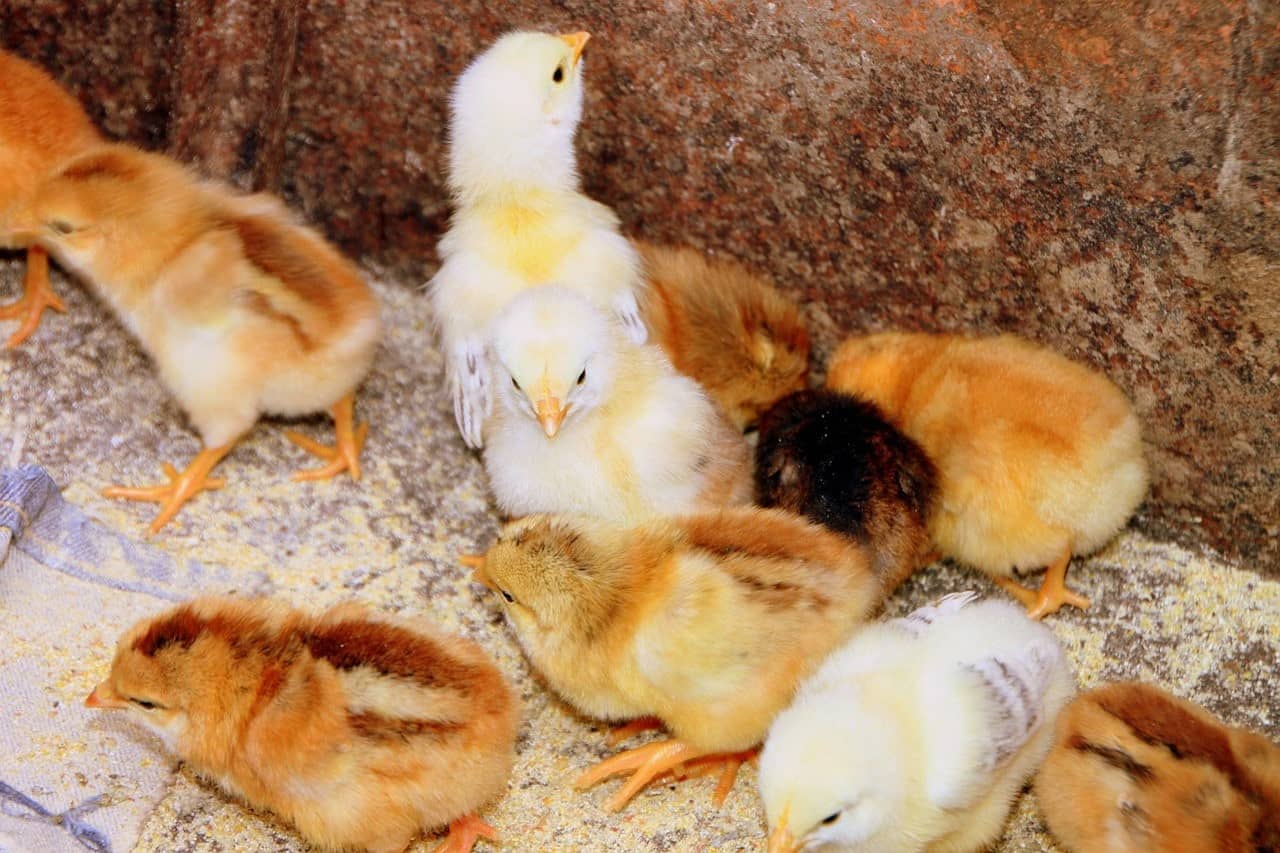
Growing chicks need plenty of protein to grow up into healthy, happy chickens, and this recipe gives them around 20% protein and is high in fat for added energy. Growing chicks cannot eat large chunks of grain like adults can, so you’ll need to process the grains in a food processor first and add in the other ingredients afterward.
- 5 pounds of oats (processed)
- 5 pounds of wheat (processed)
- 5 pounds of split peas (processed)
- 2-4 ounces of fishmeal
- 4-8 ounces of sunflower seeds
- 2-4 ounces of kelp meal
- 1-2 tablespoons of brewer’s yeast
5. Sprouted Grain Homemade Recipe
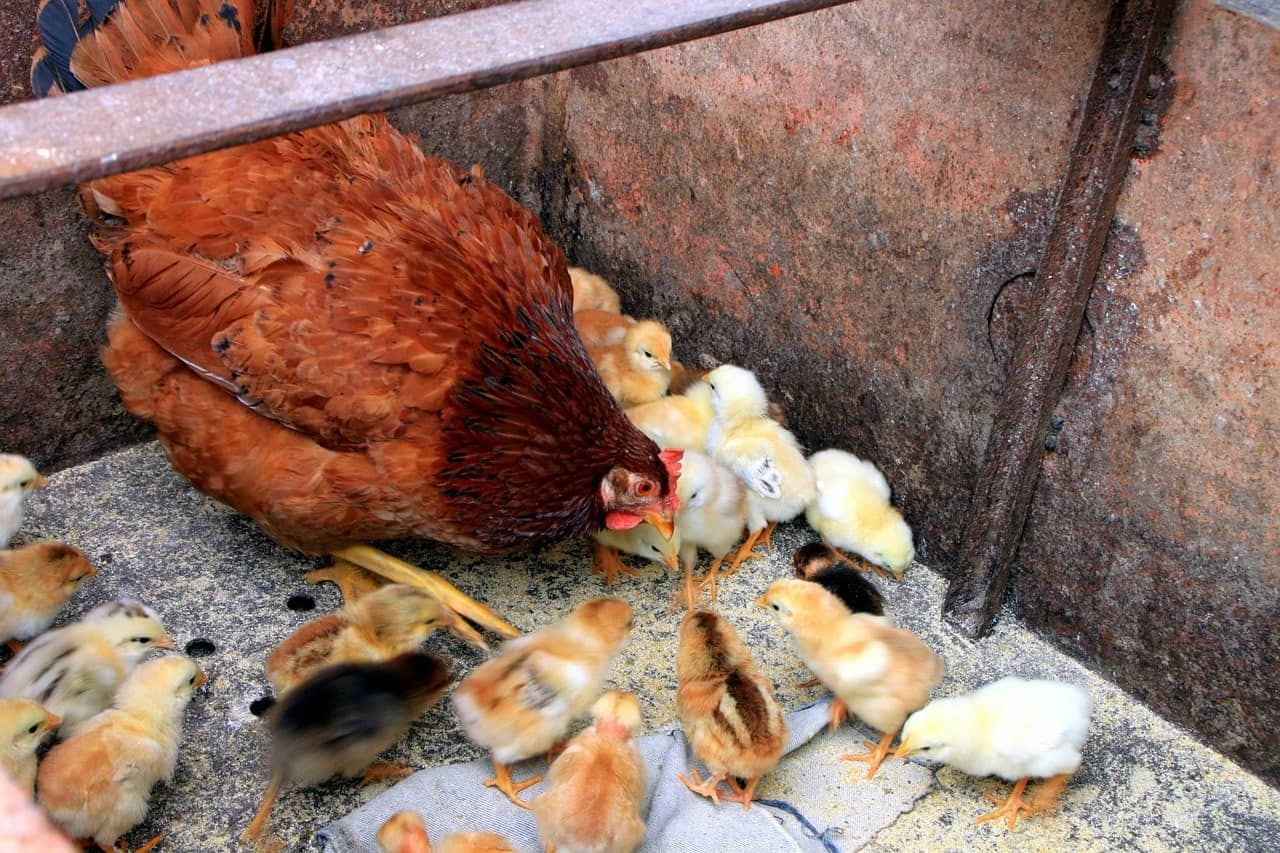
This recipe is easy to make at home and will give your chickens a varied meal that they’ll love. The recipe may take a bit more preparation time, since the grains are sprouted, but sprouting your grains unlocks a host of nutrients that will be more bioavailable to your chicken. You’ll need to soak the grains for 24 hours, and they’ll usually take 2-3 days to sprout. Just be careful not to let them sprout longer than 3 days, as there may be a mold issue.
- 5 pounds of sprouted seeds (corn, barley, wheat)
- 5 pounds of split peas
- 1 pound of oats
- 2 tablespoons of sesame seeds
- ½ cup of mealworms
6. Organic and Non-GMO Feed Mix
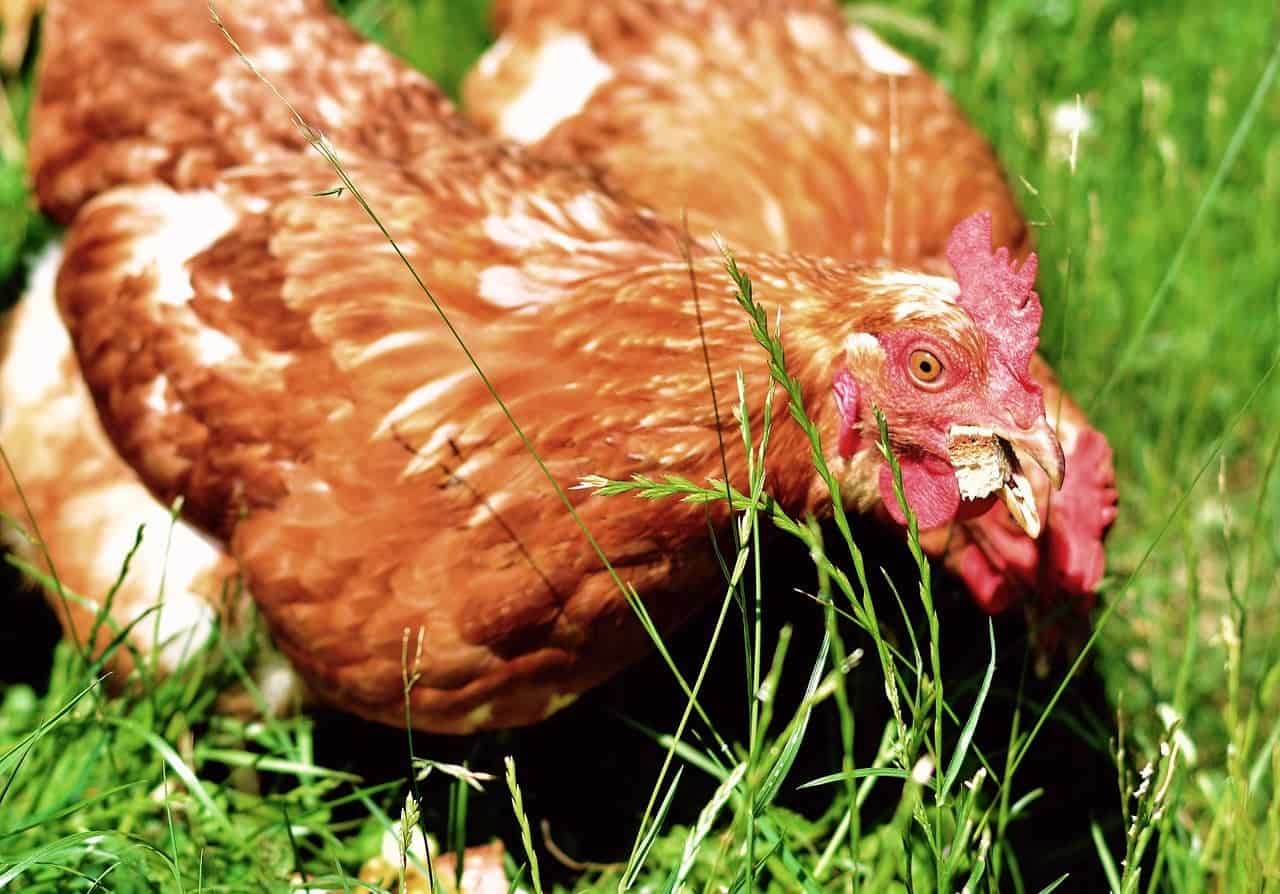
Many chicken owners are cautious about feeding their chickens GMO ingredients, and if this is one of your concerns, the following recipe is ideal. Bear in mind that finding organic and non-GMO grains can be a challenge and is usually expensive.
- 5 pounds of corn
- 5 pounds of split peas
- 5 pounds of wheat
- 2 pounds of oats
- 2 pounds of barley
- 5 ounces of fishmeal
- Tablespoon of mineral salts (not for free-range)
- Crushed eggshells

Final Thoughts
It can be stressful to be responsible for the nutrition of your backyard flock, and feeding them the correct ratio of nutrients is essential. But chickens are hardy creatures, especially if they are free-ranging, which is highly recommended. They are proficient at eating what they need and leaving what they don’t. It’s a great idea to add occasional greens into these recipes because your chicken will love them and benefit greatly from the additional nutrients!
Featured Image Credit: LesiChkalll27, Shutterstock
